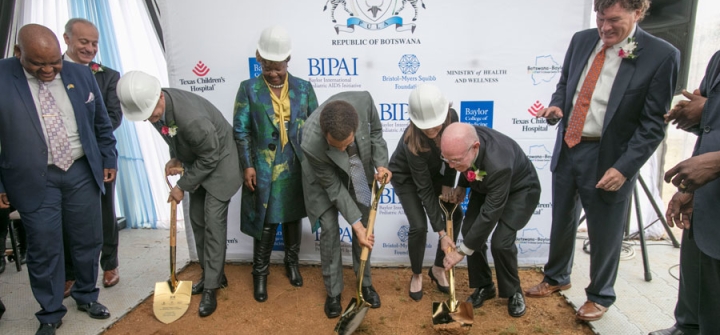A $100 Million Boost for Pediatric Cancer Care in Africa
In Botswana, Malawi and Uganda alone, there are an estimated 11,000 new pediatric cancer cases each year. Currently, there are only 5 trained pediatric oncologists across those countries. Across sub-Saharan Africa, the mortality rate for pediatric cancer cases is estimated to be as high as 90%.
Aiming to meet this need, the government of Botswana announced a new $100 million pediatric hematology-oncology initiative this week called Global HOPE (Hematology-Oncology Pediatric Excellence). The new public-private partnership aims to treat children with cancer and blood disorders, modeled after successful pediatric HIV/AIDS treatment programs in the region. Partners include Texas Children’s Cancer and Hematology Centers, Baylor College of Medicine International Pediatric AIDS Initiative and the governments of Botswana, Uganda and Malawi. The program expects to train thousands of health care professionals and treat thousands of children in its first 5 years. The effort is supported by a $50 million donation from the Bristol-Myers Squibb Foundation and matched by $50 million in additional philanthropy. John Damonti, president of the Bristol-Myers Squibb Foundation, shares insights into the program in this Q&A.
How did you select Botswana, Malawi and Uganda as the first countries for this partnership—are there similarities in their underlying health systems, or was it driven by need?
The Bristol-Myers Squibb Foundation and Baylor International Pediatric AIDS Initiative (BIPAI) have worked in public-private partnership with the governments of these countries to create the largest pediatric HIV care and treatment network globally, including training HCPs [health care providers] and building capacity in these countries. The Global HOPE initiative will build on these relationships and BIPAI’s infrastructure to create a sustainable model of care in Botswana, Malawi and Uganda.
In those countries alone, we believe there are more than 11,000 new cases annually of pediatric cancer and 40,000 new cases of serious, life-threatening blood disorders such as sickle cell disease and hemophilia. Because of these staggering numbers, more health care providers are urgently needed. Currently, there are only 5 trained pediatric oncologists—3 from Texas Children’s Hospital—across these 3 countries. While the program will focus on these countries at first, the model will serve as a blueprint for other low and middle-income countries. Additionally, HCPs from other countries will be trained in the Pediatric Hematology-Oncology Centers of Excellence in Botswana and Uganda.
How will Global HOPE help incentivize the newly trained health professionals to stay rather than leave their countries for opportunities abroad?
We believe that the model to be implemented of training health care providers in their home countries, rather than sending them abroad to train, helps to retain the health professionals in the country of origin. As with any HCPs, where they choose to work after training is their decision. We hope that having a state-of-the-art, robust and sustainable cancer treatment network will not only retain the talent we are training but may also attract HCPs who have left for other countries to return home.
Will the services be available to low-income children as well as well as those who can afford to pay for treatment? If so, how will their care be covered?
We anticipate patients may be charged the standard nominal governmental fees for hospital admission where required. Global HOPE will not charge any separate fees for the care provided by the faculty and staff; ultimately, the governments of Botswana, Malawi and Uganda are responsible for operating the facilities.
Do you know if the new centers will be able to procure reduced-cost equipment and drugs?
We are still working out the details of constructing and equipping the centers so are unable to comment at this time on the availability of reduced-cost equipment, or on the procurement of medicines—which will be managed by the Ministries of Health of the individual countries.
Breaking ground in Gaborone, Feb. 21: President Ian Khama of Botswana joined the Bristol-Myers Squibb Foundation and the Baylor International Pediatric AIDS Initiative at Texas Children’s Hospital. Charlotte Raymond Photography





